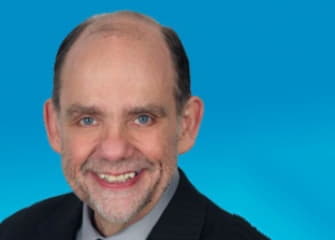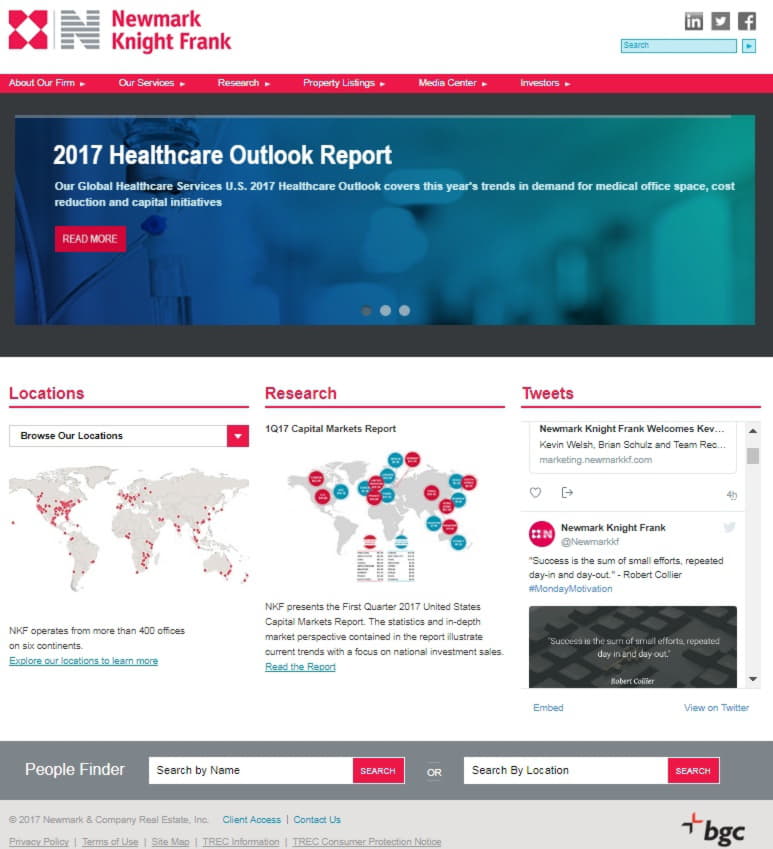
Mike Daley
Click here for Part I & Part II
Transforming treatment for osteoarthritis and other musculoskeletal conditions
Mike Daley is the CEO of OrthogenRx, a medical device company based in Doylestown, Pennsylvania. Since its incorporation in 2012, OrthogenRx has been working on developing and commercializing new treatments for musculoskeletal conditions such as osteoarthritis. In 2015, the FDA approved GenVisc® 850 (sodium hyaluronate), the company’s first product, which treats osteoarthritic knee pain.
EDWIN WARFIELD: Tell us about getting the drug approved. Were there other companies that had tried and failed with similar products?
MIKE DALEY: Originally, when the first company to apply for Hyalgan approval first applied, they had a large clinical study, they thought it was going to be regulated as a drug, like it was in Italy—and by the way the second product that was approved at the same time, which was called Supartz, was approved in Japan in 1987, also as a drug—when they originally made their application in the US, they assumed it was going to be a drug.And then the FDA says, “Well, you have to ask us to determine who is going to…” it’s called a letter of determination. They reached out, and the FDA made a determination. It wasn’t the company that said “I want a drug or device approval.” The FDA made that decision based upon that they were already regulating hyaluronic acid. By the way, hyaluronic acid is in all your soft tissue; hyaluronic acid is in all the high-end cosmetics because it’s incredibly hygroscopic, it keeps your skin moist; when you lose hyaluronic acid in your skin, you can startto get wrinkles, et cetera. It’s also injected like Restylane. It’s a little bit more crosslink to fill wrinkles and things. It’s in the vitreous humor of your eye—the liquid in your eye. We think through hyaluronic acid, we walk on hyaluronic acid, and we see through hyaluronic acid. The FDA said, “Well we’ve already approved a similar hyaluronic acid for ophthalmic surgery”— so when you have surgery on the interior part of your eye, all the fluid leaks out and if you replace it with just water or saline, your eye actually shrivels up because of the physical characteristics of the fluid, so you want to kind of recapitulate what the fluid is in the eye, and they did that with hyaluronic acid—that’s the predominant fluid component in the eye. The FDA had already approved products as a fluid replacement.So if it’s a fluid replacement, there’s not much biology going on; it’s probably mechanical. Hyaluronic acid is extremely viscous, and so it essentially cushions between the ends of your bone, helps cushion that compression as well as with thecartilage, and it’salso a good lubricant. If you ever put hyaluronic acid in your hands, it’s almost like rubbing together oil, only it dissipates very quickly. The FDA made that determination that they decided to do it as a device and that’s how it was.
We already know, that in the drug industry, if you have a part that’s equivalent and if you have a part that is not covered by patents, you make an application called the generic drug application showing equivalents and showing that there’s no difference between those, so it’s a much more accelerated profile that does not require new clinical data. You do not have to demonstrate, in clinical trials, the safety and effectiveness of a generic drug if you can show that you are chemically and operationally identical to the drug that was originally approved. This is what happens when drugs go off patents. Congress passed, back in the 80s, a process for which you could get a class II medical device approved, called the 510(k) process. The 510(k) process says, “Okay, there’s a product out there. I’m the same as that product,” and it’s called the “predicate;” you cite a predicate—which was the same, as far as I’m concerned, of a brand and a generic drug, that relationship—“I’m the same as this product,” so therefore, the burden of proof for clinical data for safety enough that you see is much lower. About 90–95% of all devices approved in the US are approved through a 510(k) process because the barrier to entry is much lower. Class III medical devices didn’t have that process, but there was a process that was passed in 1997 that did allow that process. But from 1997 to 2015, there was not a single product that was ever approved through this, if you will, generic class III medical device pathway. That’s what I was trying to take advantage of.
Connect with Mike on LinkedIn
Sponsored by:
ABOUT NEWMARK KNIGHT FRANK
Newmark Knight Frank (NKF) is one of the world's leading commercial real estate advisory firms. Together with London-based partner Knight Frank and independently-owned offices, NKF's 15,000 professionals operate from more than 400 offices in established and emerging property markets on six continents.
With roots dating back to 1929, NKF's strong foundation makes it one of the most trusted names in commercial real estate. NKF's full-service platform comprises BGC's real estate services segment, offering commercial real estate tenants, landlords, investors and developers a wide range of services including leasing; capital markets services, including investment sales, debt placement, appraisal, and valuation services; commercial mortgage brokerage services; as well as corporate advisory services, consulting, project and development management, and property and corporate facilities management services. For further information, visit www.ngkf.com.
NKF is a part of BGC Partners, Inc., a leading global brokerage company servicing the financial and real estate markets. BGC's common stock trades on the NASDAQ Global Select Market under the ticker symbol (NASDAQ: BGCP). BGC also has an outstanding bond issuance of Senior Notes due June 15, 2042, which trade on the New York Stock Exchange under the symbol (NYSE: BGCA). BGC Partners is led by Chairman and Chief Executive Officer Howard W. Lutnick. For more information, please visit www.bgcpartners.com.


Edwin Warfield, CEO of citybizlist, conducts the CEO Interviews.
If you're interested in reaching CEOs, please contact edwin.warfield@citybuzz.co
Connect on LinkedIn










